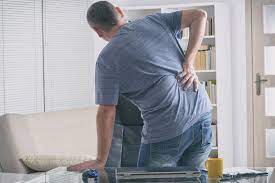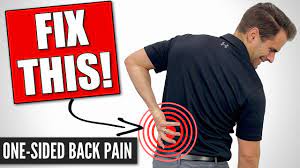How can poor posture contribute to back pain?
How can poor posture contribute to back pain?
Poor posture can significantly contribute to back pain by putting undue stress on the spine and surrounding muscles. Here’s how:
1. **Spinal Misalignment**: When you have poor posture, your spine can become misaligned. This misalignment can lead to increased pressure on the vertebrae, discs, and the spinal cord itself, causing pain and discomfort.
2. **Muscle Imbalance**: Poor posture often causes certain muscles to become overused and tight, while others become weak and overstretched. This imbalance can lead to muscle strain and spasms, which are common sources of back pain.
3. **Increased Pressure on Discs**: Slouching or hunching forward increases the pressure on the intervertebral discs, particularly in the lower back. Over time, this can lead to disc degeneration, herniation, or bulging, which can cause chronic back pain.
4. **Joint Stress**: Poor posture can place excessive stress on the joints in your spine, especially the facet joints. This can lead to joint inflammation and arthritis, both of which can cause significant pain.
5. **Reduced Flexibility**: Maintaining poor posture can lead to a decrease in flexibility in your spine and surrounding muscles. This stiffness can make it difficult to move properly and may contribute to pain when you try to perform everyday activities.
6. **Nerve Compression**: Misalignment and muscle tension from poor posture can compress the nerves that run through your spine. This compression can cause pain that radiates to other parts of your body, such as the legs or arms, depending on which nerves are affected.
7. **Strain on Ligaments and Tendons**: Poor posture can overstretch and strain the ligaments and tendons that support your spine. This strain can cause micro-tears and inflammation, leading to chronic back pain.
To prevent back pain caused by poor posture, it is important to maintain a neutral spine position, engage in regular exercise to strengthen the core and back muscles, and practice good ergonomics, especially if you sit for long periods. Regular stretching and movement can also help alleviate the negative effects of poor posture.
Be the first to review “How can poor posture contribute to back pain?” Cancel reply
Related products
Back Pain







Reviews
There are no reviews yet.